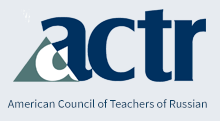Russian Language Journal
Keywords
advanced-level, L2 reading and speaking skill development, structure of learning, speech functions, functionally oriented language teaching, Russian as a foreign language
Abstract
As students progress from advanced to the professional level, it is critical that their control of speech acts increasingly approximates that of native speakers. The article The Person: A Central Theme in an Advanced Russian Language Course provides an example of one of the methodologies used in the Russian Overseas Flagship program for addressing these goals. Instructional units require student reflection and critical thinking (e.g. constructing of mental maps) to help them in expressing ideas and concepts in a way that meets the linguistic, socio-pragmatic and intercultural requirements of the range of personal and professional situations in which they find themselves. Skills include control of grammatical constructions essential for typical speech tasks such as persuasion or formal presentations, as well as linguistic self-management skills, such as self-correction and re-phrasing during the course of one’s speech. For this reason homework assignments include analysis of texts or videos focused on specific lexical, grammatical, textual, rhetorical tasks related to a course topic or professional domain.
A central theme of the course, «Человек», and the related sequences of learning activities illustrate how the student at this level can be prepared to recognize and respond appropriately to cultural as well as linguistic content of native speaker communications, beginning with surface-level comprehension of objects and situations, to understanding of underlying social and cultural layers of meaning, to the application of the full set of skills to communication at the abstract level.
Recommended Citation
ПШЕНИНА, ТАТЬЯНА
(2020)
"«Человек» – центральная тема языковой подготовки на продвинутом уровне,"
Russian Language Journal: Vol. 70:
Iss.
1, Article 5.
Available at:
https://scholarsarchive.byu.edu/rlj/vol70/iss1/5

